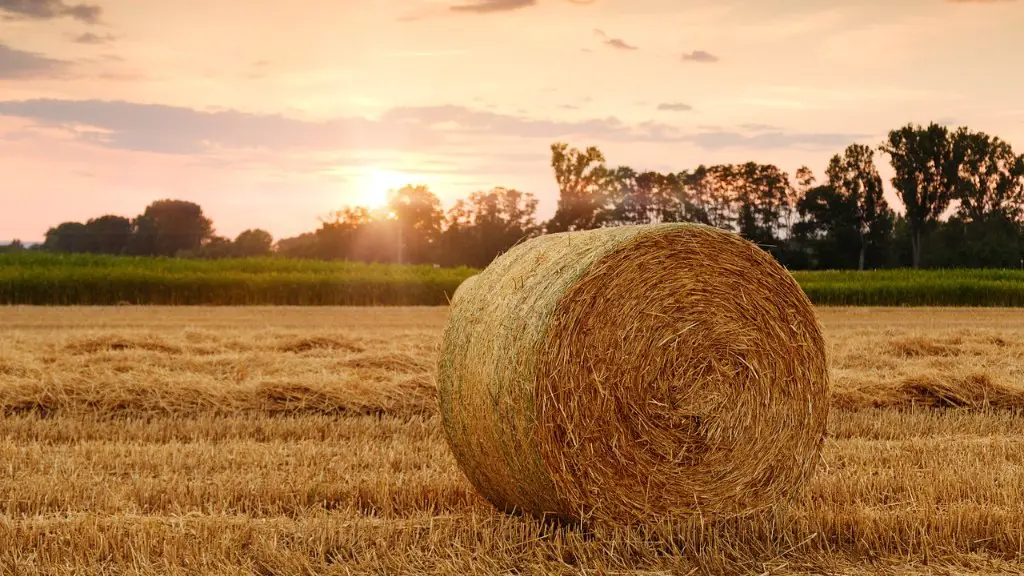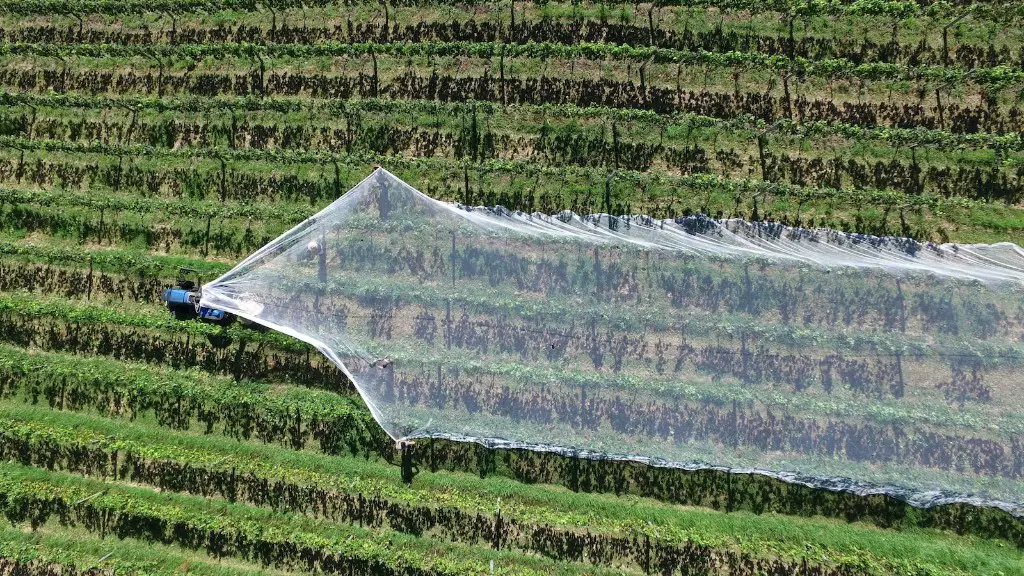Over the last few centuries, production agriculture has been the mainstay of a large number of industries, with many different industries providing critical support services such as marketing, transportation, and financing. Three of the major sectors that support production agriculture are its research sector, input suppliers, and agribusiness.
The research sector consists of universities and independent research centers that are responsible for conducting research into crop varieties, vaccines, soil structure and fertility, and new farming technologies. These research organizations are critical for advancing the productivity of agricultural production and for developing new products for the food industry.
Input suppliers are companies that provide farmers with the necessary supplies for the successful production of their crops. This includes chemicals for fertilizer, herbicides, pesticides and insecticides, seed treatments, and specialized equipment such as tractors, irrigation systems and greenhouses.
Agribusinesses are companies that provide farmers with the services they need to market and sell their products. Agribusinesses provide farmers with marketing assistance, storage services, transportation services, and processing services. They also play a critical role in financing farmers by providing access to credit and other financial instruments.
Without the services provided by the research sector, input suppliers and agribusinesses, farmers would not be able to efficiently and effectively produce crops while maintaining profitability. It is therefore essential that these industries remain strong in order to sustain production agriculture worldwide.
Research Sector
In order to remain competitive in the agricultural industry, there must be an effective system of research and development that constantly works to discover new ways to increase crop productivity. The research sector works diligently to identify new crop varieties that can survive in extreme environments and endure disease and pest infestations. They also develop new pesticides and herbicides in order to protect crops from potential pests and weeds.
In addition to crop research, research centers also conduct soil and water research. This research is used to determine the best soil type for producing certain crops and what nutrients are necessary in order to maximize productivity. In addition, they study the effects of climate change and other environmental conditions on agricultural production.
Finally, research centers develop new technologies that help to increase the efficiency of agricultural production. They are also at the forefront of developing new techniques to increase water and energy efficiency while reducing pollution.
Input Suppliers
Input suppliers provide farmers with the tools they need to produce their crops. These include different types of chemicals, such as fertilizers, herbicides, and pesticides. Additionally, they provide specialized equipment, such as tractors, irrigation systems, and greenhouses.
Input suppliers cooperate closely with the research sector in order to ensure that the chemicals and equipment they provide to farmers are safe and effective. They also work to develop new technologies that increase efficiency, such as self-driving tractors and automated planting systems.
Furthermore, input suppliers have their own research and development departments that are responsible for the development of the latest crop protection technologies. These technologies include robotic weeders, insect traps, and other products that protect crops from potential pests and weeds.
Input suppliers are essential to the success of farmers as they provide the tools and equipment needed to optimize crop yields.
Agribusinesses
Agribusinesses provide farmers with all the services necessary for marketing and selling their products. This includes providing them with marketing assistance and advice, as well as storage and transportation services. They may also operate processing plants that ensure that the crops are safe for human consumption.
In addition to providing these services, agribusinesses also play a vital role in financing farmers. They provide loans and other types of financial instruments that are essential for farmers in order to purchase the necessary inputs for their production. They also help to manage the risks associated with agricultural production by providing insurance and other risk-management services.
Finally, agribusinesses are at the forefront of bringing innovation to the agricultural industry. They work closely with universities, research centers, and input suppliers to develop new products, technologies, and techniques that benefit farmers.
Conclusion
The research sector, input suppliers and agribusinesses play a critical role in supporting production agriculture. This is due to the fact that these industries provide vital services such as research and development, input supply, and financial support. Without them, farmers would be unable to produce the food that is so necessary for the human population. Therefore, these industries must remain strong in order to ensure a secure food supply for future generations.




